Baseball History Comes Alive Now Ranked #2 by Feedspot Among All Internet Baseball History Websites and Blogs!
Guest Submissions from Our Readers Always Welcome!
Subscribe to my blog for automatic updates and Free Bonus Reports: “Memorable World Series Moments” and “Gary’s Handy Dandy World Series Reference Guide.”
Bill Terry Collectibles on Amazon
Bill Terry Photo Gallery
Click on any image below to see photos in full size and to start Photo Gallery:
Giants’ Manager Bill Terry Learns A Lesson – the Hard Way!
You’ve heard the old saying: “Hell hath no fury like a scorned woman”? Well, it applies in spades to scorned baseball fans! Here’s the infamous quote Giants’ manager lived to regret:
“Pittsburgh, St. Louis and Chicago will be the teams we’ll have to beat. I don’t think the Braves will do as well as they did last year. I was just wondering, is Brooklyn still in the league?”
Have you ever said something without thinking and then immediately regretted saying it? I know I have. You wish you could “catch” the words and take them back just as they are coming out of your mouth, but you realize it’s too late. If you’ve ever done this, then you’ll know how Giants’ manager Bill Terry – never known for his subtlety – probably felt back on this day back in 1934. Talk about giving your enemy bulletin board material!
Terry was responding to a casual interview question about the Brooklyn Dodgers prospects in the upcoming baseball season. He made what he thought was a light, off-handed remark. When the quote appeared in the next day’s papers, he found that his casual remarks had been taken seriously. Dodgers fans were mad. The next day they flooded the Giants’ office with angry letters. They let Bill Terry know in no uncertain terms that Brooklyn fans had long memories; and, given the chance, they would exact their revenge.
The next day’s New York Evening Post opined that Terry had “awakened a sleeping bear.” Likewise, the Dodger front office demanded to know just what “Memphis Bill” meant. If Terry thought he would go unchallenged in Brooklyn, he was mistaken. Dodger business manager Bob Quinn countered with a stinging rebuke: “This ill-befits a manager of a championship ball club, particularly a manager who was so thin-skinned himself that he was very much perturbed about writers picking his team to finish last in 1933. And the Brooklyn club may fool Mr. Terry by being the team to prevent him from repeating his triumph of last year. At least, we’ll let him know we are still in the league.” Little did Quinn realize just how prescient his words would soon become.
The Giants’ spirits were high as the new baseball season approached. They were coming off a 1933 World Series championship, their first since 1922, and it looked like another pennant was on the horizon. They had a solid started pitching rotation anchored by the great Carl Hubbell, plus veterans Freddie Fitzsimmons and Hal Schumacher. Newly acquired shortstop Dick Bartell had solidified the infield, while timely hitting was provided by Terry, Mel Ott, and Jo-Jo Moore.
The Giants held a five-game lead over the Cardinals as late as Labor Day, but suddenly the wheels started came off. The Giants’ lead disappeared in late September as Terry’s weary club slumped badly. Good hitters stopped hitting. A great pitching staff began showing signs of fatigue. The Cardinals,a great team led by Dizzy and Paul Dean, Frankie Frisch, fiery Leo Durocher, and Joe Medwick, crept closer and closer and finally caught the Giants on Sept. 28, 1934. Just two games were left to play. The Giants lost the first of the final two games to the Dodgers’ Van Lingle Mungo, a game played at the Polo Grounds packed with thousands of screaming, taunting – and delighted – Brooklyn fans. And then they proceeded to lose the second as well. Meanwhile, the famed St. Louis “Gashouse Gang” won their final two from the Reds, taking the pennant by two games on their way to the 1934 World Series crown.
Sure enough, Bill Terry’s flippant remark – which he claimed had meant to be a joke – had come back to bite him in a big way. The lowly Brooklyn Dodgers, the team Bill Terry had once referred to Casey Stengel’s “Brooklyn Clowns” had knocked the Giants out of the pennant race, just as Bob Quinn had predicted. The next day there was rejoicing in St. Louis, but back in New York there was a mixed bag of emotions. Manhattan was deathly silent, but across the East River in Brooklyn, jubilant Dodger fans, who hated their arch-rival Giants, danced in the streets. The flippant remarks haunted Terry for the rest of his life, even though the Giants won two more pennants under his leadership.
Terry may have lived to regret these words, but there’s no doubt he was a great ball player. Over his 14-year career (1923-’36), Terry posted a .341 batting average, with 2193 hits, 1120 runs, 373 doubles, 112 triples, 154 home runs, 1078 RBI’s, a .393 on-base percentage, and a .506 slugging average. In 1930, the three-time All-Star led the National League in hits (254) and was the 1930 batting champion (.401), becoming the last National Leaguer to hit over .400. In 16 post-season games, he hit .295 with two home runs and seven RBI’s. Terry was also considered the finest defensive first baseman of his era. He managed the Giants from 1932-’41, going 823-66 (.555), winning three pennants and one World Series championship (1933).
In 1999, he ranked number 59 on The Sporting News list of the 100 Greatest Baseball Players, and was a nominee for the Major League Baseball All-Century Team. The Giants retired Terry’s uniform #3 in 1984, and he was elected to the Hall of Fame in 1954. Bill Terry passed away on January 9, 1989, aged 90.
Gary Livacari
Photo Credits: All from Google search
Information: Background information from SABR biography of Bill Terry by Fred Stein; Excerpts edited from the Bill Terry Wikipedia page.
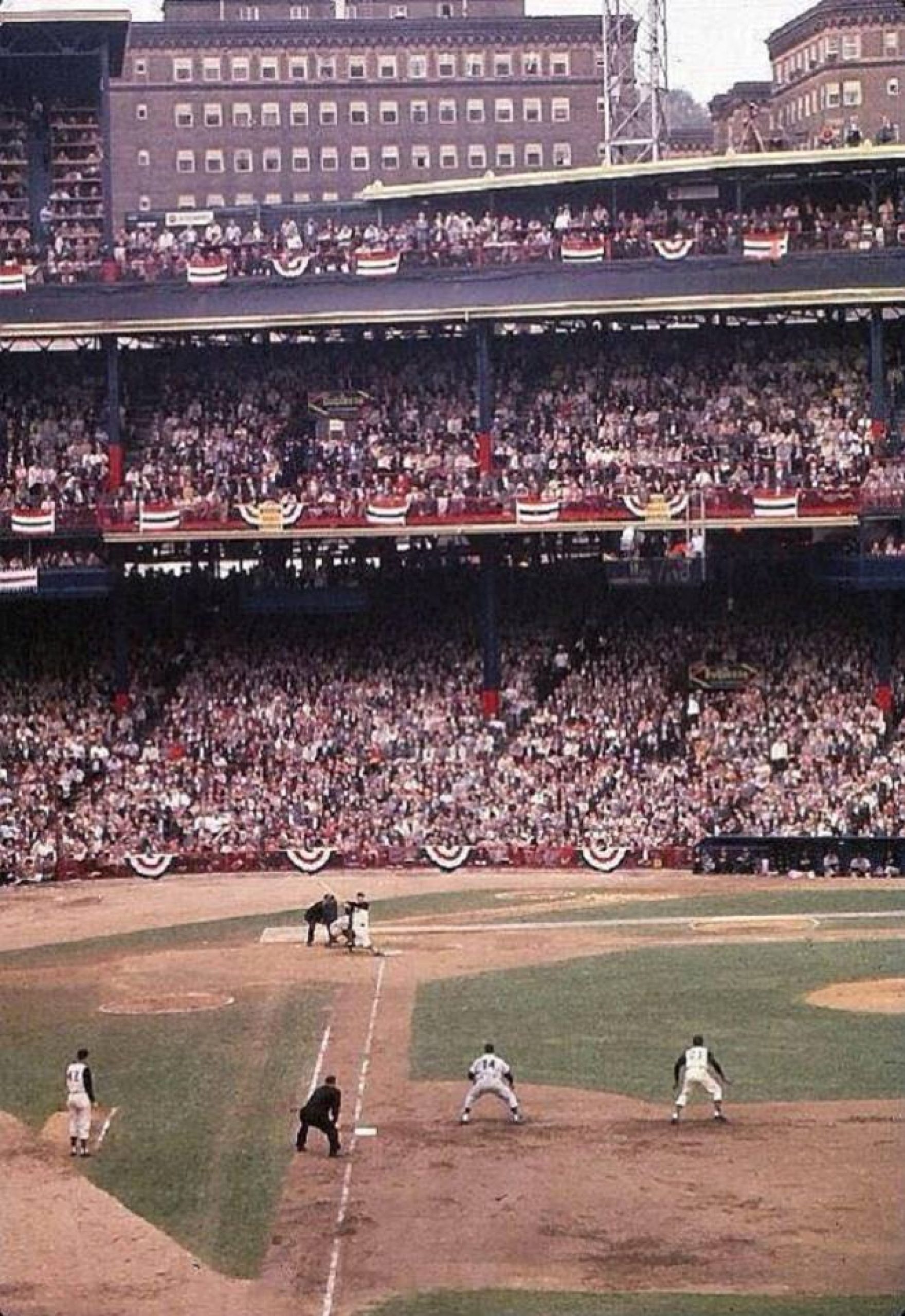
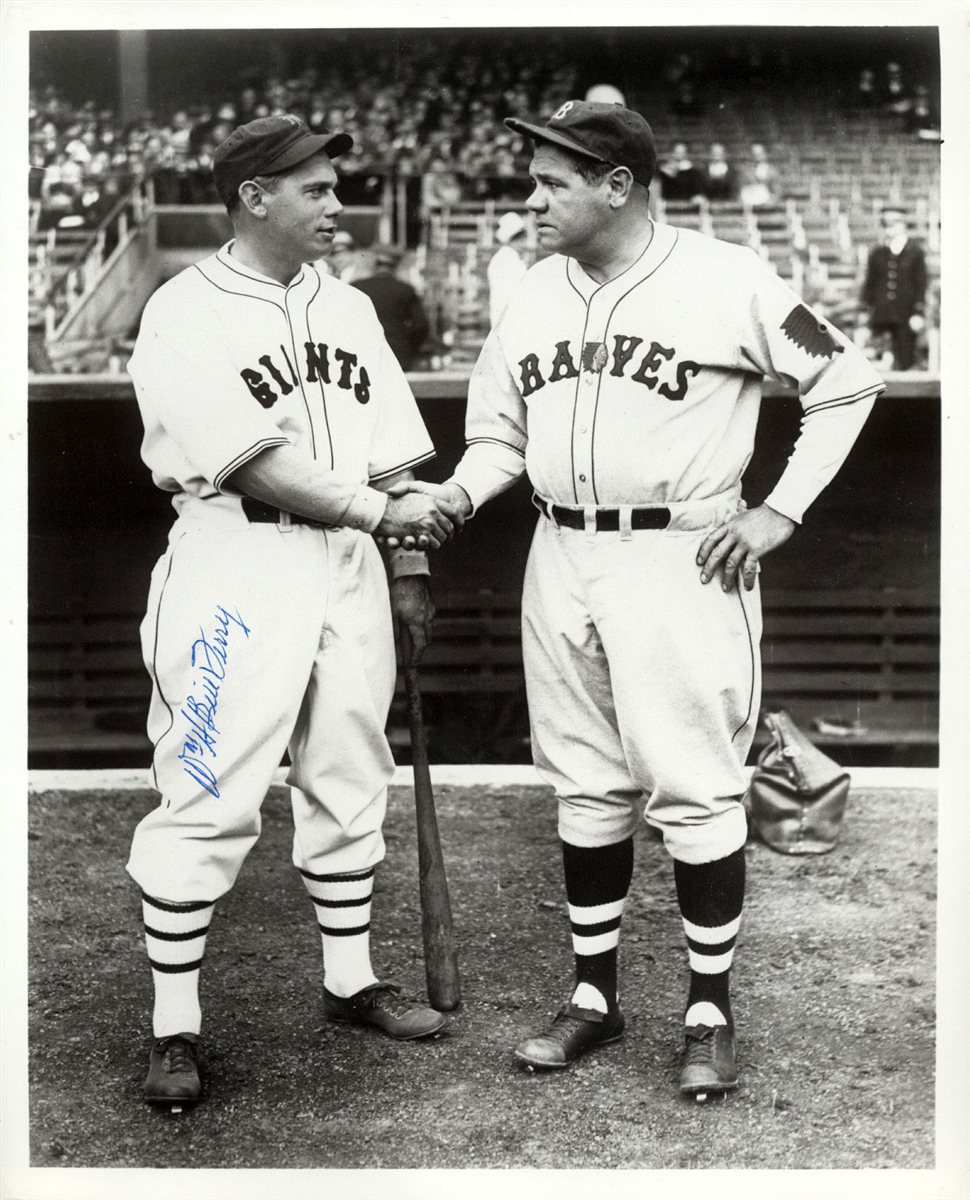
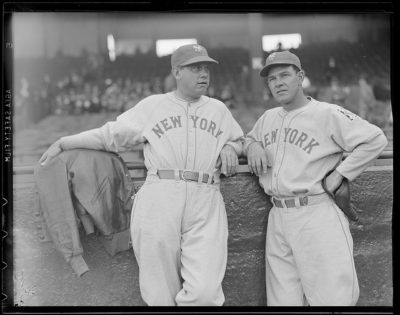
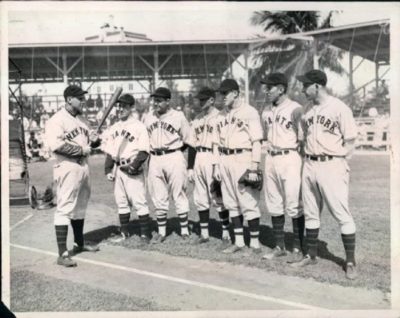
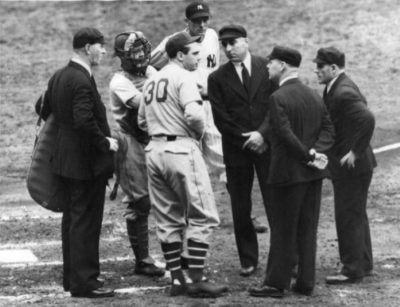
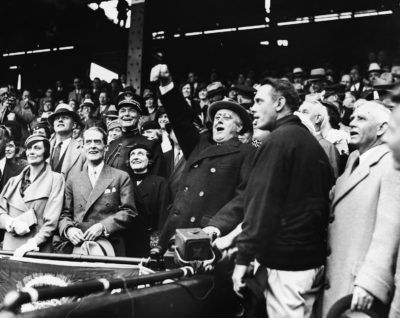
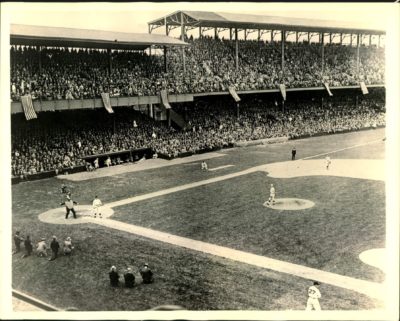
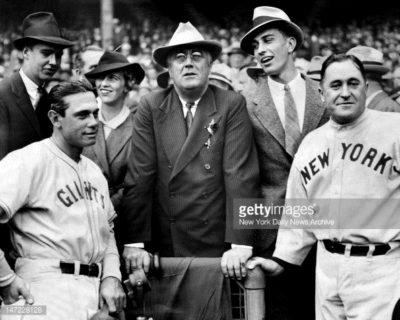
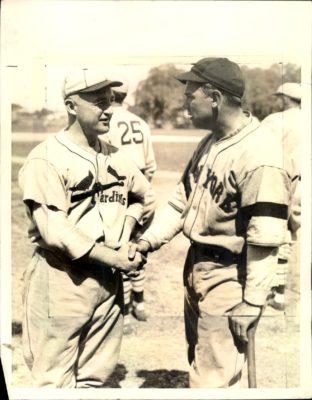
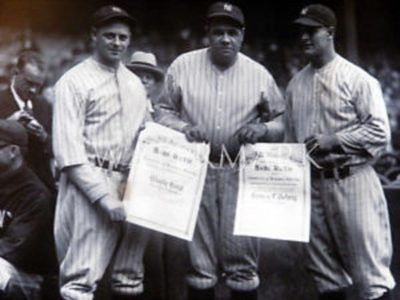
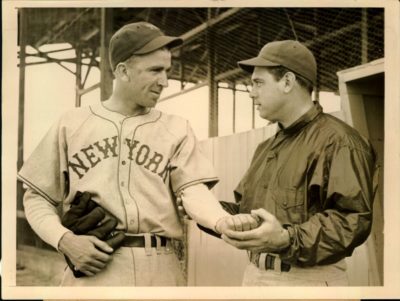
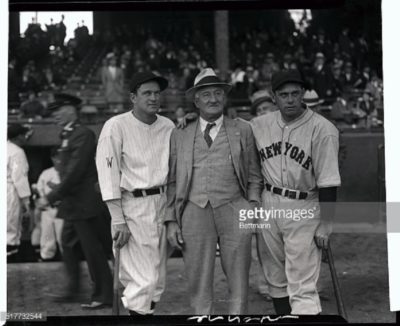
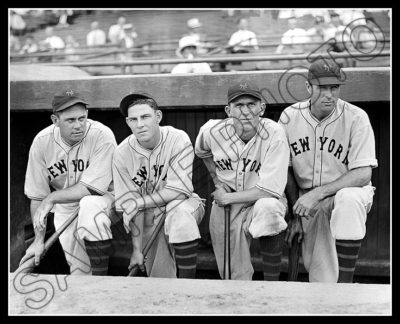
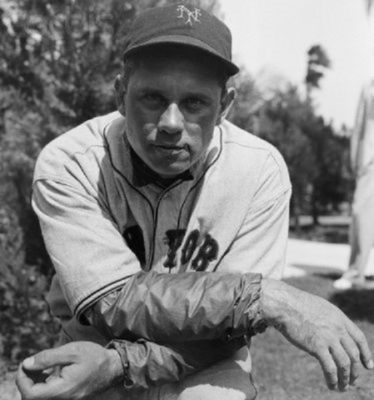
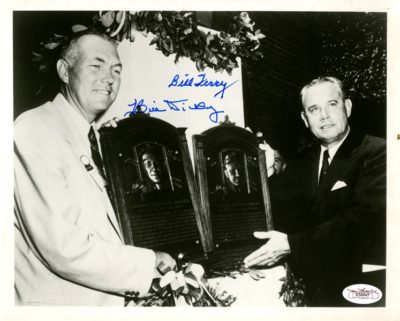
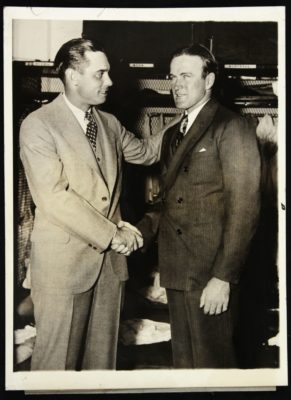
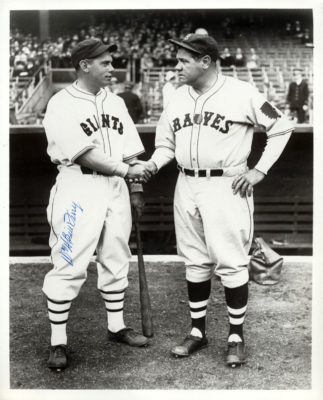
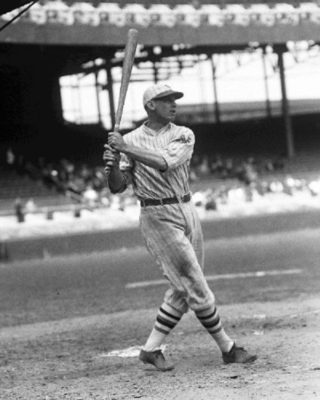
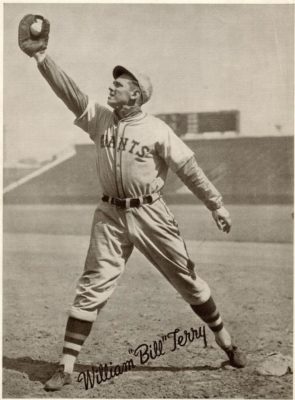
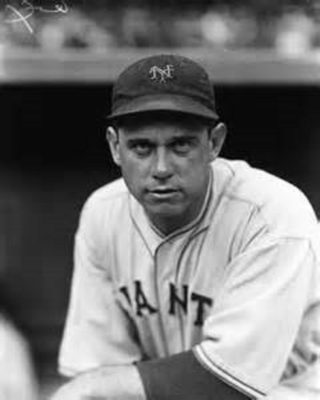
Thanks for reminding me of this post which I wrote over five years ago. I’m going to repost it today.